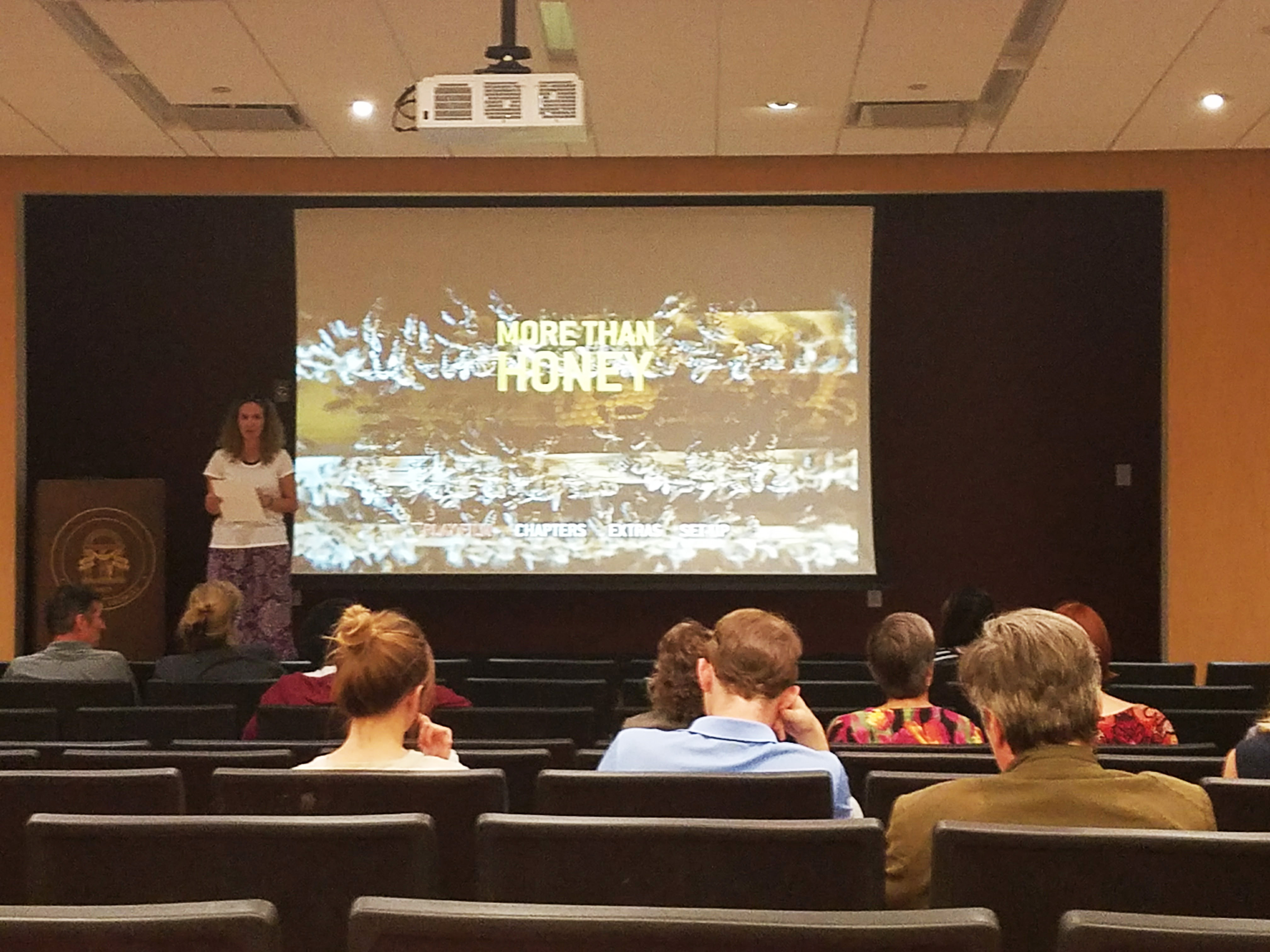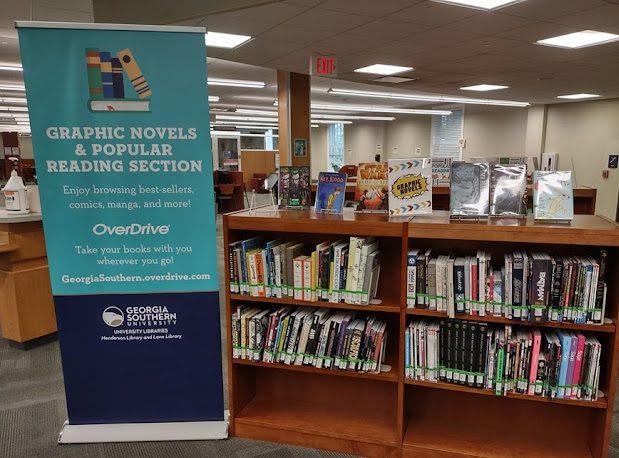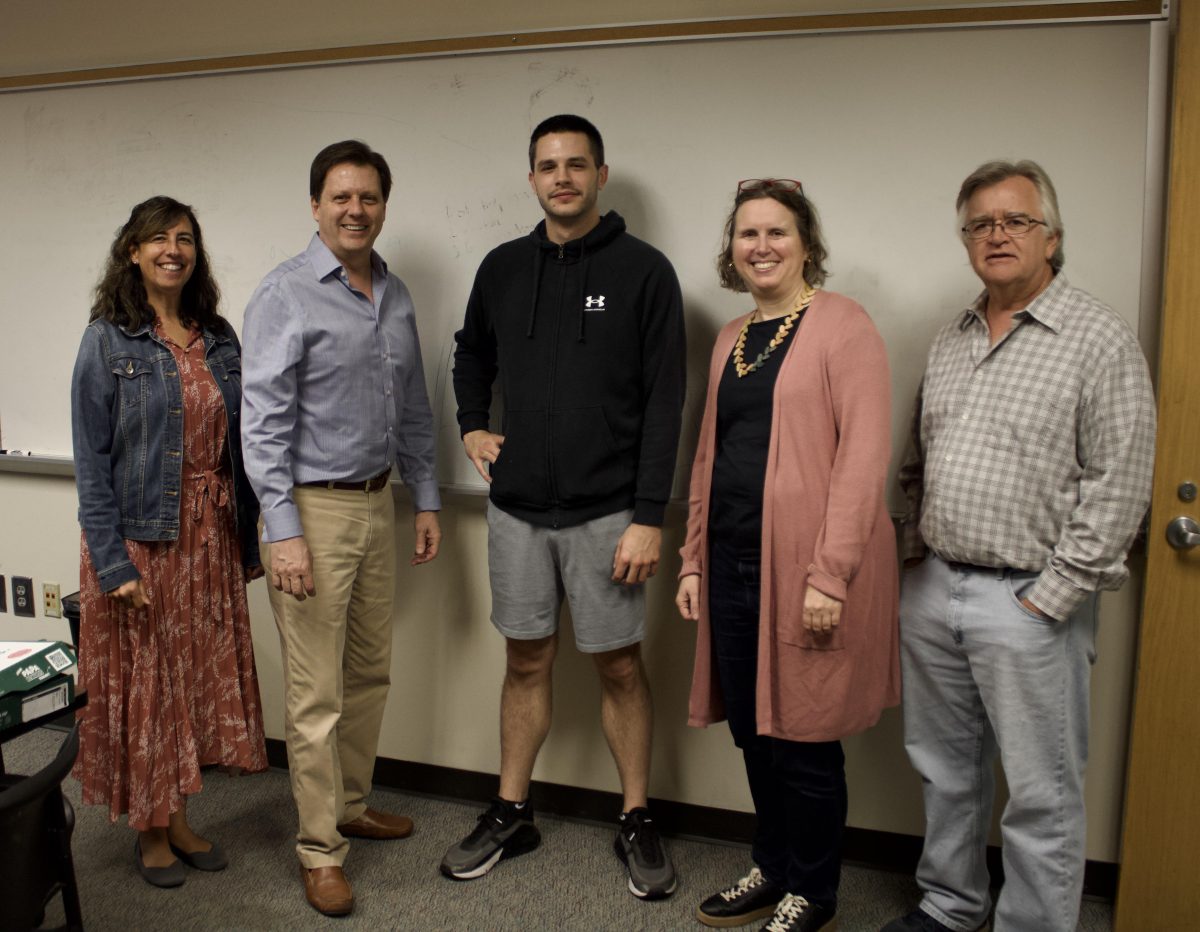Madison Watkins, Staff Writer

In honor of Earth Day, Go Green Armstrong partnered with Making Maroon Green to present the 2012 documentary “More Than Honey” April 19 in the Ogeechee Theatre.
The film was about the decline of bees and how large corporations and international small farmers treat the practice of beekeeping. The documentary helps to raise awareness about the importance of bees in the environment and presents a call to action on how to help.
The main culprits behind the bees’ downfall are mites, the use of stimulating drugs by corporations, stress and the use of pesticides. One portion of the film offered a glimpse at what life would be like without bees.
In some regions of China, pesticides are used so heavily that bees have disappeared completely. Officials have workers paint each flower bud with pollen by hand.
Local beekeeper Andy Morgason from B&G Honey Farm in Register, Ga, spoke to the audience about the importance of her work. She is continuing her family’s practice.
“Even my great grandfather knew that pesticides would kill bees,” Morgason said.
She told the audience that big commercial bee farmers give the bees drugs such as antibiotics to keep bees working constantly.
Bees are also affected by varroa mites that attack a colony by sucking all of their blood and giving them viruses that cause their wings to deform.
“When our bees have mites we cover them in powdered sugar so they clean themselves. When they do this it helps get rid of the mites without harming the bees,” she explained.
“We also never lose a hive by moving it. Bees go to bed and wake up like clockwork so if you wait until nighttime to move the hive when they are all asleep, you will have most of your bees accounted for.”
Before the film began, Morgason illustrated the importance of honey and bee sustenance.
“Honey is very beneficial for you. It is very useful with ailments and if you were stranded somewhere and only had honey to eat, you would live.”
The representatives of Go Green Armstrong said that the film was chosen by a majority vote.
“We started planning for Earth Day in the middle of the semester and this was the film people voted for in meetings and a Facebook poll,” Grace Powers, a dual-enrolled biology major said.
Kaylee Powers, a junior biology major and the president of Go Green Armstrong, added, “I’m glad this movie was chosen because you don’t see in everyday life how we would be affected by the disappearance of bees. This film really shows the humanitarian aspect of it.”
Freshman nursing major Ariel Lipat said, “it shocked me how the bees were mass produced. It made me sad to see how they were treated.”
If you would like to do more to help your environment or the bee population, join the Go Green Armstrong club. Stop by the Forsyth Park Farmers’ Market every Saturday from 9 a.m. to 1 p.m. where local vendors will be selling honey.















